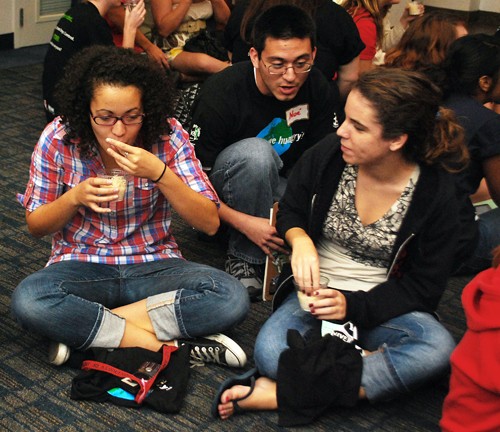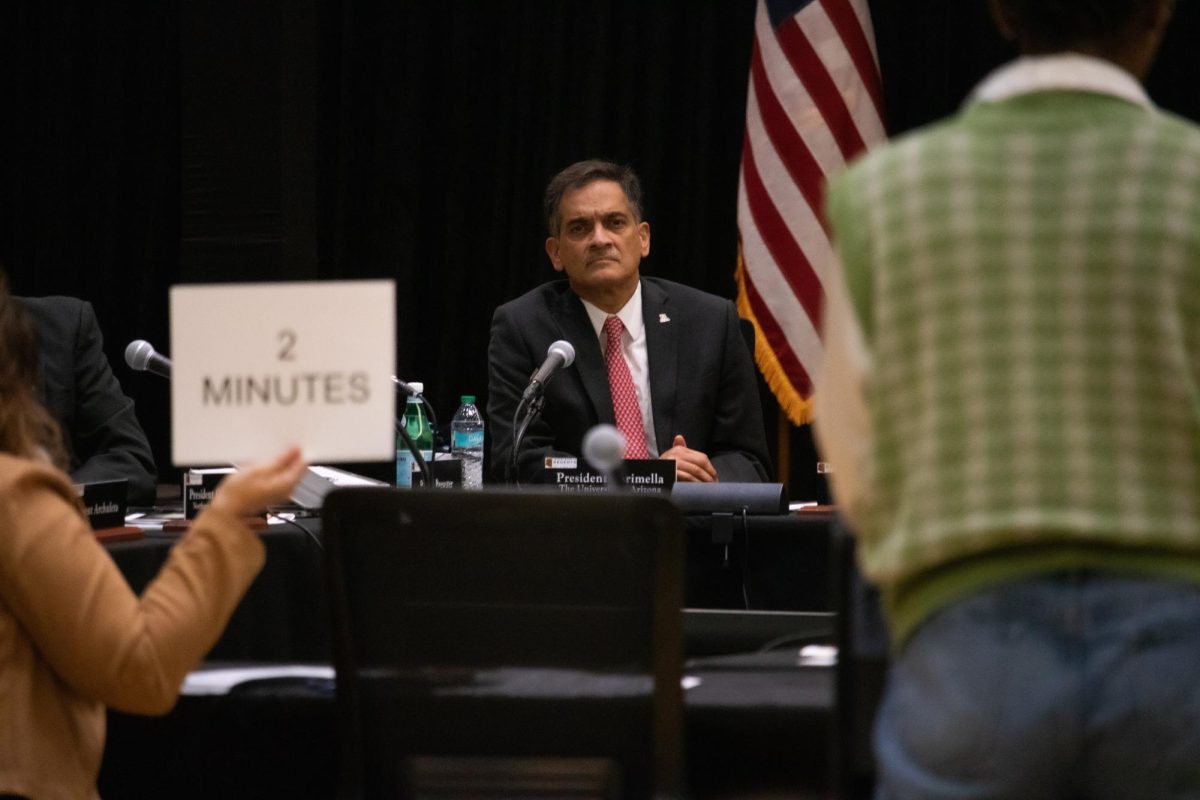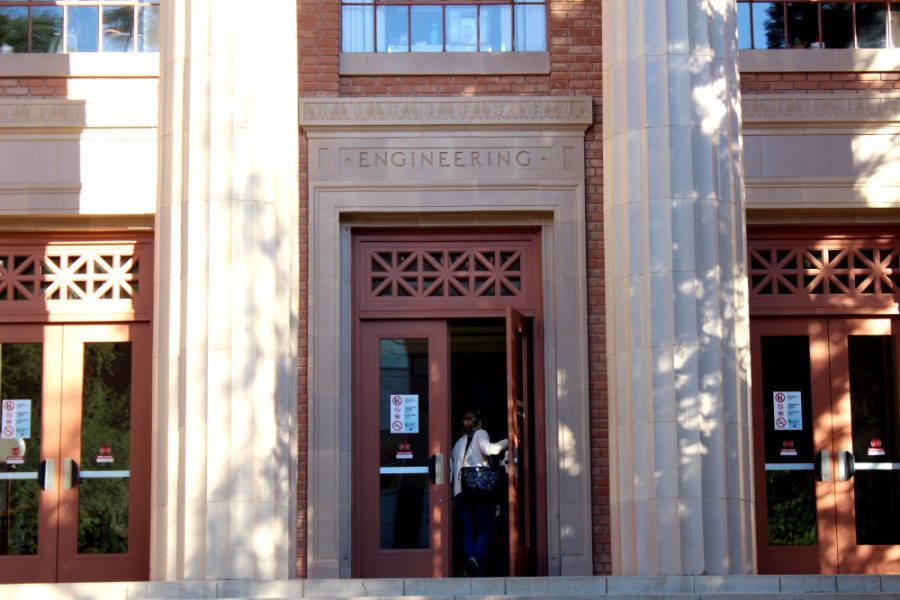Students with grumbling stomachs lined up outside of Pima Residence Hall on Wednesday night to learn their fate at the 16th annual Hunger Banquet.
The students had fasted for 30 hours to simulate world poverty and hunger, but the simulation didn’t end when the fast did. As students walked through the doors, they received a paper determining whether they would be high class, middle class or low class.
The higher-class students made up 15 percent of the group and were seated at two tables with white table cloths. Students in the high class dined on marinara pasta, bread, salad, coffee and iced tea.
Middle-class students made up 30 percent of the group. These students did not have the luxury of a table and sat on folding chairs drinking ice water and eating rice and black beans on plates with plastic forks.
The remaining students sat on the floor and were given rice in cups and had to eat with their hands and were able to get room temperature water.
Emily Spirk, a sophomore studying vocal performance and French, said seeing the visual breakdown of poverty was “”very jarring.””
“”I was kind of disappointed when I got my slip,”” said pre-public health sophomore Stephanie Cole. “”It really simulates how something can be taken away from you.””
The paper also had a name, story of the person’s daily life and the country they live in.
“”We’re trying to put a more human element on it by giving people names,”” said Hannah Lozon, coordinator of social justice education at Residence Life.
Cole said having the name helped make the experience more personal.
“”It puts a name and almost a face in my mind, and it shows how much it wasn’t a choice,”” Cole said.
The banquet was hosted by Advocates Coming Together, a Residence Life social justice group that formed a year and half ago.
“”It’s a really good opportunity for people to become aware and get involved in ending poverty,”” said psychology freshman Caroline Shanholtz.
The Hunger Banquet is organized by Oxfam, which helps give students a script and materials to put on the event. Oxfam has been doing these events since the 1980s, according to Lozon.
To emphasize that hunger is not a choice, Advocates Coming Together rearranged students before the meal was served. Some students were told they had lost their jobs and would have to move to lower class, while other were told they had found work and could move to middle class.
Students were not required to fast for 30 hours to attend the banquet and Advocates Coming Together collected donations for the Tucson Community Food Bank, encouraging students to donate the money they would have normally spent on food. They also collected canned donations.
Lauren Morast, biomedical engineering freshman, said she was “”very hungry to be honest”” and that she tried to stay out of her dorm because she had just been grocery shopping.
“”It makes me feel really privileged to have copious amounts of food in my dorm,”” Morast said.









